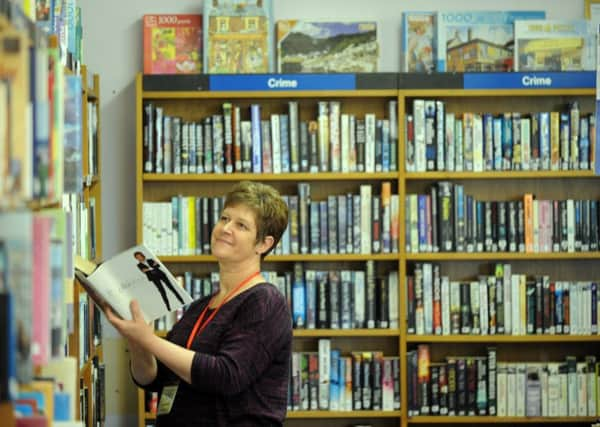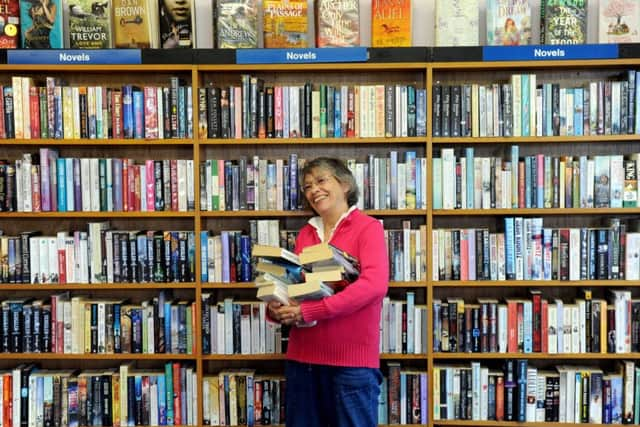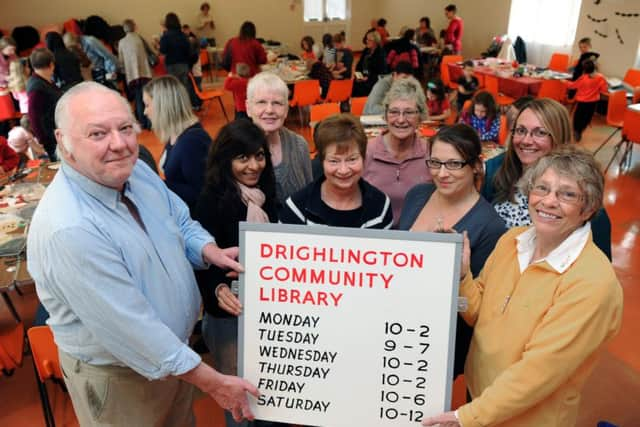New chapter for Yorkshire’s libraries... but who’s writing it?


MOST people will be able to recall from childhood a visit to their local library and the sense of awe to be had while wandering between towering bookshelves, laden with tomes of every size and subject and of discovering those hidden corners where the silence sits heavy and the only thing to do is turn the page and let the words come alive.
But as much of an institution as it is, the local library is under threat and some fear it will disadvantage a generation of children. Amid the fallout from Chancellor George Osborne’s spending cuts, councils are being forced to make stark decisions because when it comes to choosing between funding care homes and library services, the latter is seen as a softer target. It’s not that councils don’t have a statutory duty to provide library services. They do. Under the 1964 Public Libraries and Museums Act, local authorities must “provide a comprehensive and efficient library service for all persons in the area that want to make use of it” and also to “lend books and other printed material free of charge for those who live, work or study in the area.”
Advertisement
Hide AdAdvertisement
Hide AdThe only problem with that is no-one bothered to define what “comprehensive and efficient” means, notwithstanding the fact that putting both words in the same sentence has the whiff of contradiction.


Councils across the land have looked for ways to balance their books in the wake of deep spending cuts, which in the case of Kirklees Council is expected to be in the region of 40 per cent of its government funding by 2018. Cutting bin collections and reducing grass cutting (both of which have been done) just isn’t enough and if you close the odd library, people may complain but no-one is going to die.
Councils are now increasingly turning to ‘friends groups’ and bands of volunteers to take on much of the day-to-day running of front line library services where otherwise closure would be the only option. Such an approach has already been taken in several areas in Leeds, including in Rawdwon, Shadwell, Cross Gates and Drighlington. It is not without its controversy, not least because it has the effect of putting paid professionals out of jobs.
But now one West Yorkshire council has pretty much given voluntary groups carte blanche when it comes to running its libraries. Just a few months ago, Kirklees Council was considering closing 24 of its 26 libraries. The council debated the subject on Wednesday and will act soon on a recent consultation of the plans, which saw strong opposition from ‘friends’ groups who are against the closure plans - in Batley, more than 11,000 people signed a petition calling for their library, opened in 1907, to remain open.
Advertisement
Hide AdAdvertisement
Hide AdCouncillor Graham Turner, the Labour cabinet member with responsibility for libraries, said they had pulled back from what “the nuclear option” of closing 24 of the 26 but said cuts were almost innevitable.


“We’re predicting a 40 per cent cut in the amount we get from the government by 2017/8. We have already taken £80m out of the budget without people noticing - that’s been done through restructuring and until this year it’s not affected front line services but there comes a point when you have to make tough decisions. We’ve decided we cannot do ‘the nuclear option’ and we will be drawing up options based on the consultation, which will go to cabinet in September.”
Coun Turner added he was keen to see bands of volunteers step forward to help with the running of libraries.
He said: “If volunteers come forward... the more help we can get, the further we can make the money go, the more libraries we can save.”
Advertisement
Hide AdAdvertisement
Hide AdCampaigners are keen to stress the ‘unseen’ benefits of libraries, the fact they foster social inclusion, help people find work and act as an anchor for so many community groups,offering a lifeline for everyone from mums with young children to the elderly.
Relying on volunteers to run libraries might be seen as an option but Lauren Smith from Doncaster campaign group Voices for the Library, says it’s not a viable long term solution.
“It’s very well intentioned but it’s not sustainable. Many groups feel they’ve been pressured into it, hoping it’s a short-term solution. The reality is if it’s not funded and run by volunteers, there’s a danger of that support dropping off. Volunteers are not paid so if they’re late opening one day or just don’t turn up, there’s nothing anyone can say and if people have turned up to the library and that happens, they’re less likely to return.
“There’s not enough big voices standing up for libraries, shouting about how they help with social mobility and inclusion.”
Advertisement
Hide AdAdvertisement
Hide AdBut volunteers running Drighlington Library may beg to differ. They took over running of the centre in 2012 and have since boosted visitor numbers.
Jeni Arnold, chair of the charity which funds the library, said the permanent closure of the library would have disadvantaged hundreds.